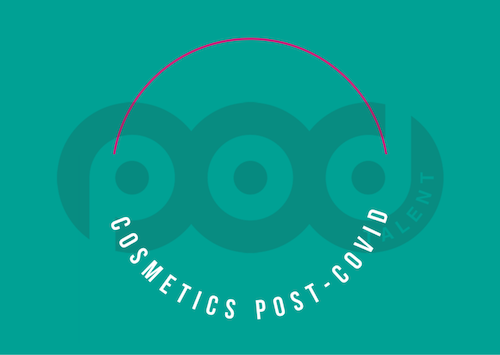2020 was certainly a challenging year for the Cosmetics sector, and the myriad of brands that make up the industry have begun to witness the latent effects of Covid-19 that did not manifest immediately. Cosmetics firms are having to face challenging new realities whilst simultaneously being shaped by them, but persisting trends from before Covid-19 continue to have their impact and should not be readily discounted.
We now tentatively move toward a post-covid world following a year that propelled notions - often considered nebulous - such as customer loyalty, consumer consciousness and buying habits, into the spotlight. Because buyers had more time to do their research, carried out against a backdrop of increased environmental awareness, sustainability, ethical production and how consumers access their favourite products quickly drew heightened scrutiny. These considerations were laid at the foundation of brand strategy and influenced decision making for both multinationals and smaller businesses alike. On the one hand, this seemingly had the somewhat surprising effect of partly homogenising a crowded industry built on individuality, expression and the fight to stand out. On the other, it caused a seismic shift to how brands engage with their customer base irrespective of their perceived niches.
This new landscape presents novel challenges, so how exactly will this impact on Manufacturing & Production within cosmetics and, significantly, what can be done to address them? I’ve highlighted 3 key areas for leaders to consider as they equip their businesses, but also their teams, in readiness for the time when masks can finally be cast aside and retail markets bounce back.
1: The need to be more global
The global market for cosmetics is booming. We might have experienced a year where half of our faces were covered by a mask and people weren’t leaving the house (and who is wearing a full face of make-up to buy loo roll?), but that hasn’t significantly impacted the global picture. The Cosmetics industry is worth some $530bn worldwide and that number is only trending upward. In India alone cosmetics sales could increase by up to $20bn by 2025 and the African market is following close behind. In response, Spanish fashion retailer Zara have entered the Cosmetics space. They will be launching their own range into Asia & Oceania and it’s expected that many other players are exploring similar launches, in order to hoover up this potential revenue. To capitalise, businesses will need to ensure their global supply chains are robust, but Manufacturing & Production leaders have a range of concerns to consider. They’ll need new global manufacturing capability, or external manufacturing partners, who are able to source the right ingredients (e.g. for Halal products), produce to new technical specifications (sweat/heat/water proof cosmetics) and uphold the same ethical standards as brand’s local operations. Speaking of local operations…
2: The need to be more local
I am acutely aware that this appears to directly contradict point #1, but bear with me. For UK based manufacturing operations, Brexit has thrown an obvious spanner in the works. It is now more expensive and more arduous to bring ingredients or indeed finished goods into the country. However, consumer consciousness plays a significant role here too. Local solutions have three primary benefits of reducing your products’ carbon footprint, ensuring good working conditions for employees across the supply chain and keeping costs down. It’s a win-win-win for consumers and many of our clients here at Pod are really pushing the importance of ‘keeping it local’. From a manufacturing & NPD perspective there’s one obvious benefit too. It’s far easier to manage the production, packaging and launch of a product if your operations are centralised in each country. This could see the rise of networks of manufacturing hubs managed at a national level, all delivering goods into different international markets.
3: Collaboration = commercialisation
Overwhelmingly, consumers aren’t fussy about whether their favourite brands are manufactured internally or by using third-party manufacturers. What they do increasingly care about however is whether these products are cruelty free, the ingredients ethically sourced and whether they contain the new and miraculous active ingredients that constantly enter the market. Consumers want to see the product journey and to buy from brands that best represent their values. Businesses that can create the best stories for their products, sell more products and the labs that create them play a critical part in that story. It’s no wonder therefore that businesses like Beauty Pie (who have linked their customers directly with producers), Carbon Theory (whose vegan acne treatments are a smash hit) and Wild Cosmetics (natural deodorant ‘made from plants, packaged in plants’) are performing so well right now. Evidence suggests there’s been a growing shift in the past 12 months from price-led, to ethics-led consumption. The most successful cosmetics brands in 2021-22 will be the ones that embrace that change and the rise of luxury cosmetics will only serve to amplify it. It’s vital then that professionals in Technical/Quality/Production & NPD can work cross-functionally to influence the story and journey behind each product.
My key takeaways that leaders can action within their teams are that:
•NPD will need significant and holistic investment from formulation through to commercialisation stage to ensure finished products satisfy the ethical/sustainability values that are becoming more prevalent in consumers
•Partnerships between manufacturing and internal quality/NPD teams will need to be nurtured to ensure brand protection and product visibility, as well as strong local/international product launch processes
•Future hires into all technical functions need to be skilled at working cross-functionally so they can get to grips with the full product lifecycle.
It’s a really exciting time for the cosmetics sector and many of Pod Talent’s clients within the industry are launching transformations or new ventures. If you would like to discuss your challenges and find out how Pod Talent can help, then get in touch now to arrange a conversation. Email Alex at alex@pod-talent.com

